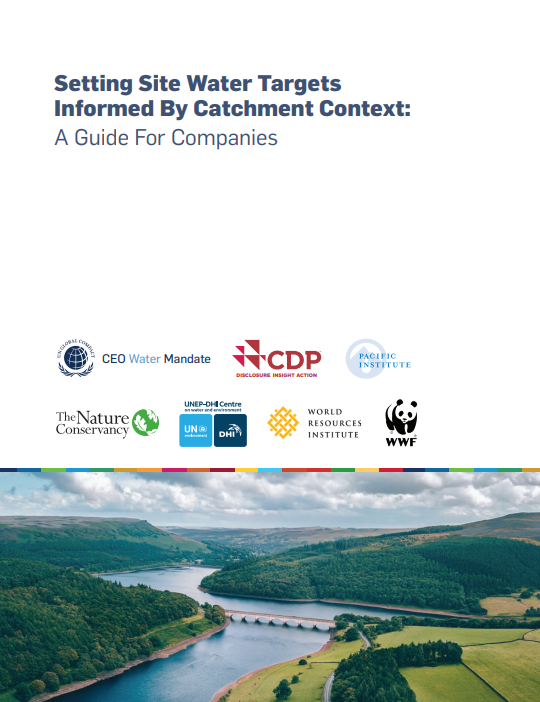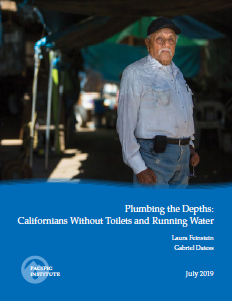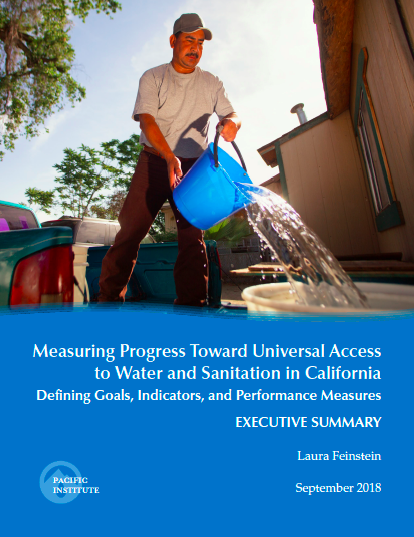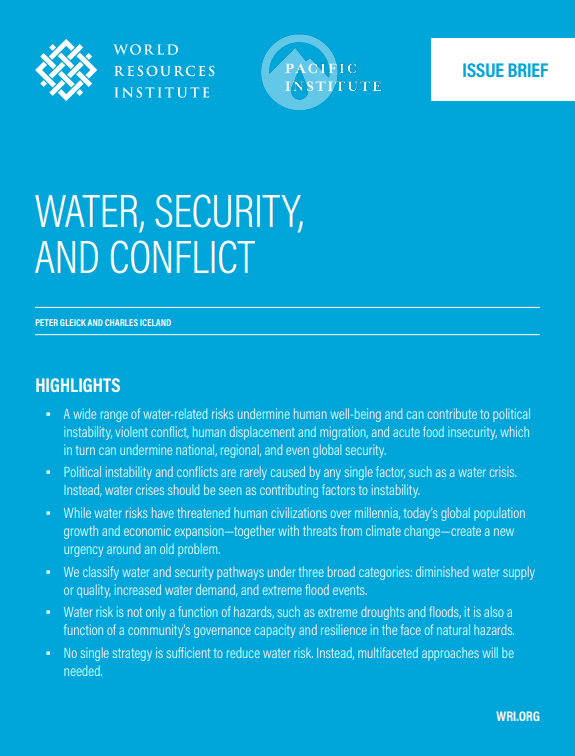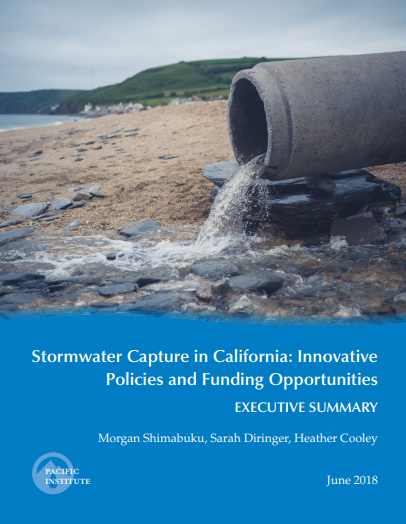1467 Resources
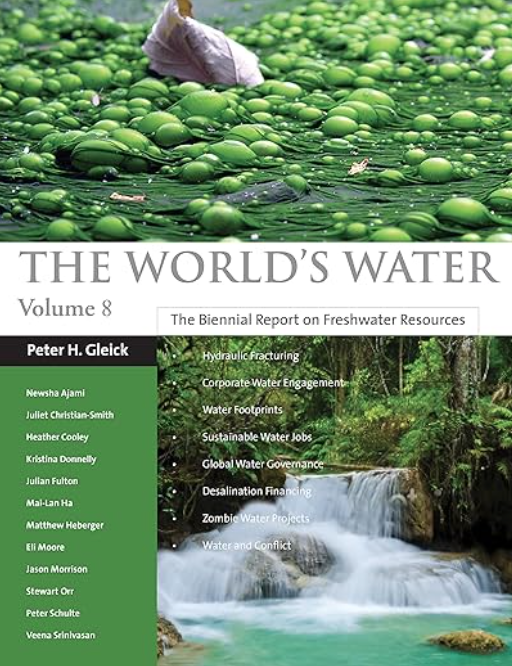
The World’s Water, Volume 8
January 15, 2014 | publication
The eighth volume in this highly regarded series, The World’s Water, Volume 8 features chapters on hydraulic fracturing (fracking), water footprints, sustainable water jobs, and desalination financing, among other timely issues. Water briefs provide concise updates on topics including the Dead Sea and the role of water in the Syrian conflict.

Water and Sanitation for All: How to engage with the private sector and create good partnership?
December 20, 2013 | post
The CEO Water Mandate joined the Sanitation and Water for All Partnership because, increasingly, companies are looking more broadly at how they engage externally with water-related issues, both at the facility and global levels.
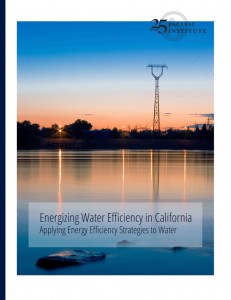
Energizing Water Efficiency in California: Applying Energy Efficiency Strategies to Water
December 18, 2013 | publication
As a dry December accentuates the stress on California’s limited water supplies, the success of the state’s energy sector in implementing efficiency programs offers valuable lessons to the water sector.
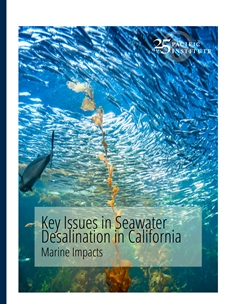
Key Issues in Seawater Desalination in California: Marine Impacts
December 10, 2013 | publication
As competition for freshwater resources heightens across the globe, the prospect of using technology to turn unusable seawater into an unending resource is a tempting fix. While seawater desalination is one potential solution to the need for alternative sources of freshwater, more research is needed to understand the impacts of desalination on marine life.

Water Policy: What about All Those Swimming Pools in Los Angeles?
December 3, 2013 | post
Water policy and water problems always seem to be someone else’s responsibility.

Nigiri at the Landscape Scale: Salmon on Rice Rolls Up Multiple Benefits for Fish and Farms
November 24, 2013 | post
Salmon on rice, also known as Nigiri, is a popular sushi dish among enthusiasts of the Japanese delicacy known for its tasty simplicity.
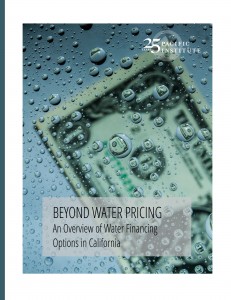
Beyond Water Pricing: An Overview of Water Financing Options in California
November 20, 2013 | publication
California’s social and economic well-being is directly tied to financing for reliable, sustainable water. This study from the Pacific Institute explores stable and sustainable sources of funding for water projects as a key to long-term solutions, and finds California’s increased dependence on general obligation (GO) bonds in funding water systems is unreliable and costly to both the state and taxpayers.

Up-scaling Sustainable Agriculture Initiatives on the Water Action Hub
November 19, 2013 | post
Technology for development has been a hot topic in the development sphere, particularly here in the Bay Area.

“Water to Supply the Land” Describes Irrigated Agriculture in the Colorado River Basin
November 7, 2013 | post
The Colorado River is a tightly controlled network of dams and diversions, spanning seven states in the U.S. and two in Mexico, providing water for fish and wildlife, agriculture, industry, and cities along the way.

The Sacramento Bee: Why I’m still confused about the proposed tunnels in the Delta
November 6, 2013 | post
I and my colleagues at the Pacific Institute have worked on California water issues for more than a quarter of a century.

Water Managers and Social Media: How to Get Started
October 24, 2013 | post
A few of you have reached out to me after I wrote about why water managers should invest in social media. It looks like I’ve managed to convince a few of you that it’s worthwhile, but now what?

Water, Food, and Agriculture
October 10, 2013 | post
Agriculture uses approximately 70% of the world’s freshwater supply. Agricultural water use is under growing pressure as demands for water increase; competition among cities, farmers, and the environment grows; and as concerns grow over large-scale overdraft of groundwater and water contamination from agricultural runoff. New threats include the challenges of climate change, which is likely to alter both water availability and agricultural water demands.

Water Vlogged: Where There Is No Water Utility
September 27, 2013 | post
In cities throughout Indonesia, utilities employ some of the latest technologies to supply treated water to millions of residents. However, service still isn’t available to thousands of those who are living in informal neighborhoods (slums) or just outside service networks.

Collective Action on Water – To What End?
September 24, 2013 | post
The United Nations has designated 2013 as the International Year of Water Cooperation, which highlights the critical importance of cross-sectoral collaboration in promoting sustainable water management.
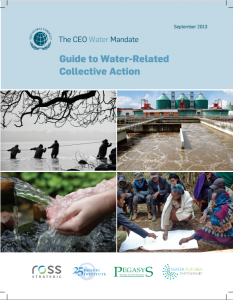
Guide to Water-Related Collective Action
September 16, 2013 | publication
Effective collective action is the key to approaching shared water risk successfully. The UN Global Compact’s CEO Water Mandate initiative — which the Pacific Institute is co-secretariat for — released this guide in 2013 in order to provide a step-by-step guide to water resource-related collective action.


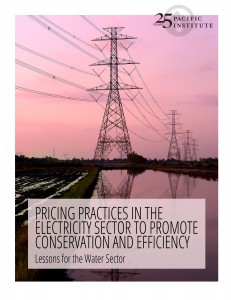
Pricing Practices in the Electricity Sector to Promote Conservation and Efficiency: Lessons for the Water Sector
September 11, 2013 | publication
Energy and water utilities face fiscal challenges related to declining per-capita demand, as well as mandates for continued reductions in consumption. This study examines a range of electricity pricing practices and policies that California electric utilities have used to remain financially stable as per-capita demand decreased.
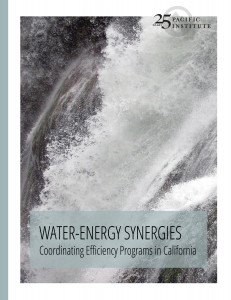
Water-Energy Synergies: Coordinating Efficiency Programs in California
September 5, 2013 | publication
All forms of energy, from hydropower to solar panels, use water. Likewise, water supply, treatment, use, and disposal all use considerable amounts of energy. Coordinating water-energy efficiency efforts provides a significant opportunity to achieve greater savings for both water and energy utilities and for their customers.

AT&T Tool Kit Uncovers Billions of Gallons of Potential Water Savings in Cooling Systems
September 4, 2013 | post
Coming from a telecommunications company and attending a conference entitled Water Cooperation – Building Partnerships, I find this an appropriate quote with which to open.

Many Agricultural Water Districts Fail to Submit Required Water Management Plans: Laggards Can Learn from Leaders
September 3, 2013 | post
A few years ago, the California Legislature passed the Water Conservation Act of 2009, which among other things, required large agricultural water providers to begin preparing agricultural water management plans (as urban water providers have done for over a decade).

WRI Insights: Managing the Earth from Space: Satellite and Sensing Technology in Water Management
August 29, 2013 | post
Andrew Maddocks of the World Resources Institute shares his WRI blog previewing the Stockholm World Water Week session “The Use of New Spatial Information Products for Improved Water Management and Risk Mapping.”
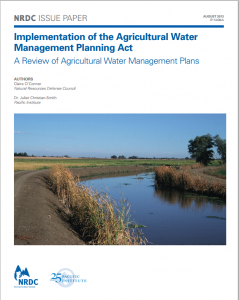
Implementation of the Agricultural Water Management Planning Act: A Review of Agricultural Water Management Plans
August 29, 2013 | publication
Twenty-four of California’s agricultural water districts have submitted agricultural water management plans, leaving 55 districts out of compliance with the requirement of the Water Conservation Act of 2009, according to a new joint analysis issued today by the Natural Resources Defense Council and the Pacific Institute. This represents a 30% compliance rate, meaning there is much work to be done to ensure sustainable water management for the state.

Hundreds of Thousands May Not Have Affordable Access to Safe Drinking Water in California
August 28, 2013 | post
In 2012, California made history by being the first U.S. state to legally acknowledge a human right to water. Yet, what does it mean, in practice, to ensure that all Californians have access to safe drinking water?
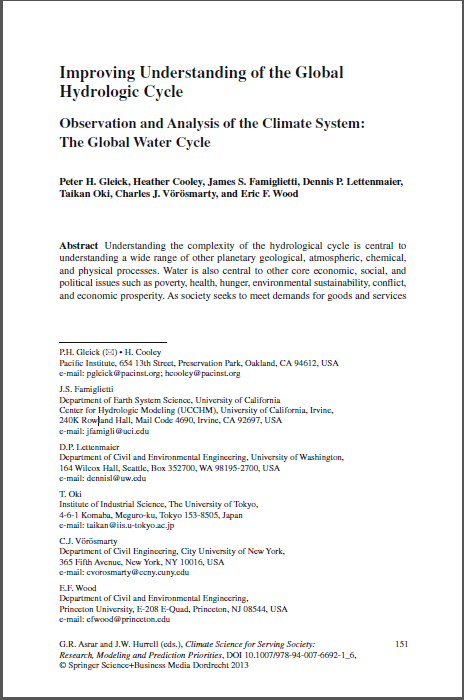
Improving Understanding of the Global Hydrologic Cycle: Observation and Analysis of the Climate System: The Global Water Cycle
August 26, 2013 | publication
As society seeks to meet demands for goods and services for a growing population, it is important to improve understanding of the fundamental science of the hydrological cycle, its links with related global processes, and the role it plays in ecological and societal well-being.
Page 44 of 59



